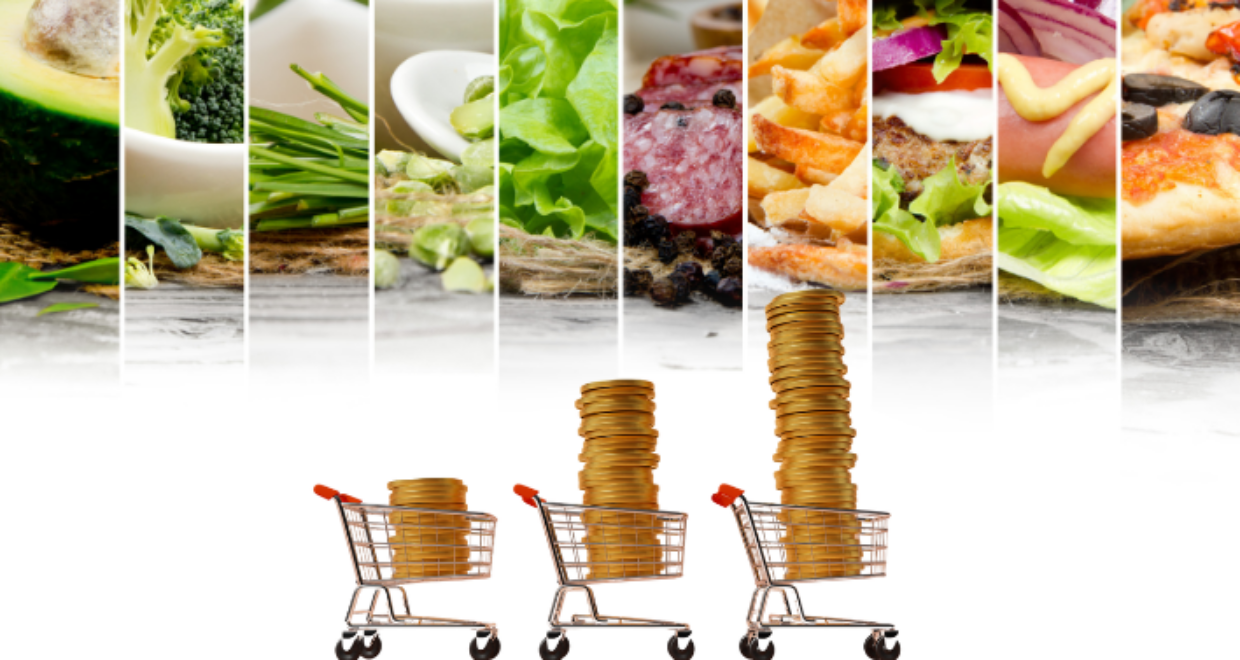Can health-related food taxes green our diets?
The Paper of the Month for March is “The effects of health-related food taxes on the environmental impact of consumer food purchases: secondary analysis of data from a randomised controlled trial in a virtual supermarket”. The paper is published in Public Health Nutrition and co authored by Margreet R Olthof, Michelle Eykelenboom, Derek Mersch, Alessandra C Grasso, Reina E Vellinga, Elisabeth HM Temme and Ingrid HM Steenhuis.
Promoting human health and minimizing environmental impact
In a world increasingly concerned with both health and environmental sustainability, the way we eat plays a critical role. However, in our search for solutions for better health and a sustainable planet, we often find ourselves at a crossroads where the decisions we make can have significant trade-offs. This delicate balance between promoting human health and minimizing environmental impact is a central challenge of our time, one that requires careful consideration and informed choices. In our research we investigated whether policies such as food taxes can help the consumer make more healthy and sustainable food choices.
Food taxes
Health-related food taxes are policies that aim to discourage the consumption of foods that are deemed unhealthy, for example, due to their high sugar, fat, or salt content. By levying taxes on items like sugary drinks, snacks, and processed foods, policymakers hope to nudge consumers towards healthier choices.
In a previous study1) we investigated the effects of a sugar-sweetened beverage (SSB) tax and a nutrient profiling tax (based on Nutri-Score) on the healthiness of consumer food purchases in a virtual supermarket. By making unhealthy items more expensive, the question was whether this discouraged their purchases and thereby their consumption, and promote healthier alternatives. We found indeed that taxation of unhealthy foods does beneficially affect the healthiness of food purchases.
Greening our diets?
Then we took it a step further and also explored if taxation of unhealthy foods can not only improve our health, but also lessen our environmental footprint and may help ‘’greening our diets’’. In our recent paper titled “The Effects of Health-Related Food Taxes on the Environmental Impact of Consumer Food Purchases’’ we explored the effects of health-related food taxes on the environmental impact of consumer food purchases in a virtual supermarket. We found that a nutrient profiling tax based on Nutri-Score reduced the environmental impact of consumer food purchases, but an SSB tax alone did not. Combining the results of our analyses, it seems that the nutrient profiling tax may address both human health and environmental sustainability objectives and could therefore act as double-duty action, creating a healthier population while safeguarding the planet for future generations.
Healthy and sustainable choices
So, what’s the takeaway from all this? Consumers have the power to drive change through their food choices. Health-related food taxes may serve as a powerful tool to help the consumer make food choices that contribute to a healthier, more sustainable future for both people and the planet.
1) Eykelenboom M, Olthof MR, van Stralen MM, et al. The effects of a sugar-sweetened beverage tax and a nutrient profiling tax based on Nutri-Score on consumer food purchases in a virtual supermarket: a randomised controlled trial. Public Health Nutrition. 2022;25(4):1105-1117. DOI: 10.1017/S1368980021004547
Each month a paper is selected by one of the Editors of the six Nutrition Society Publications (British Journal of Nutrition, Public Health Nutrition, Nutrition Research Reviews, Proceedings of the Nutrition Society, Journal of Nutritional Science and Gut Microbiome). Take a look at the entire Nutrition Society Paper of the Month Collection.




